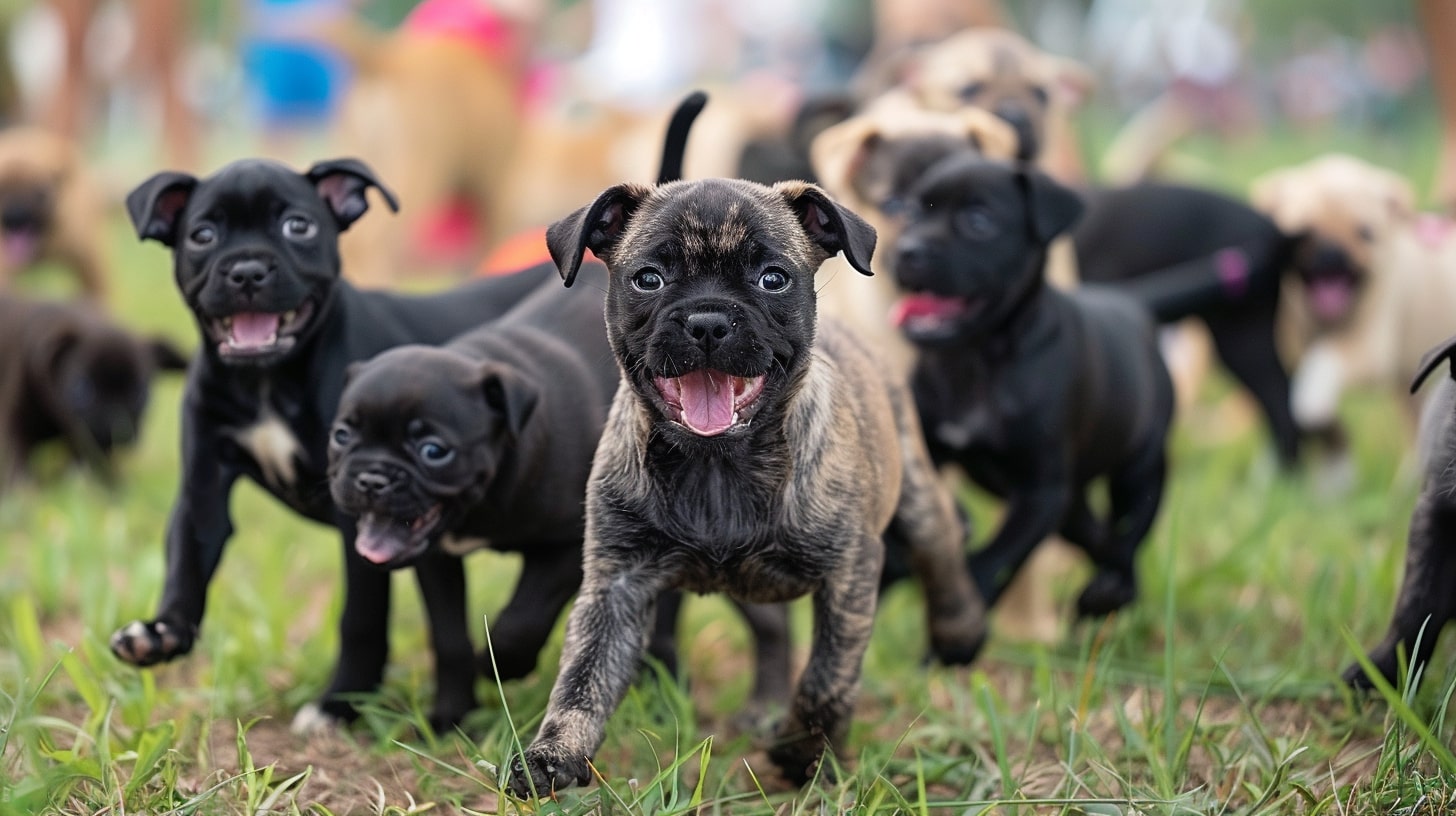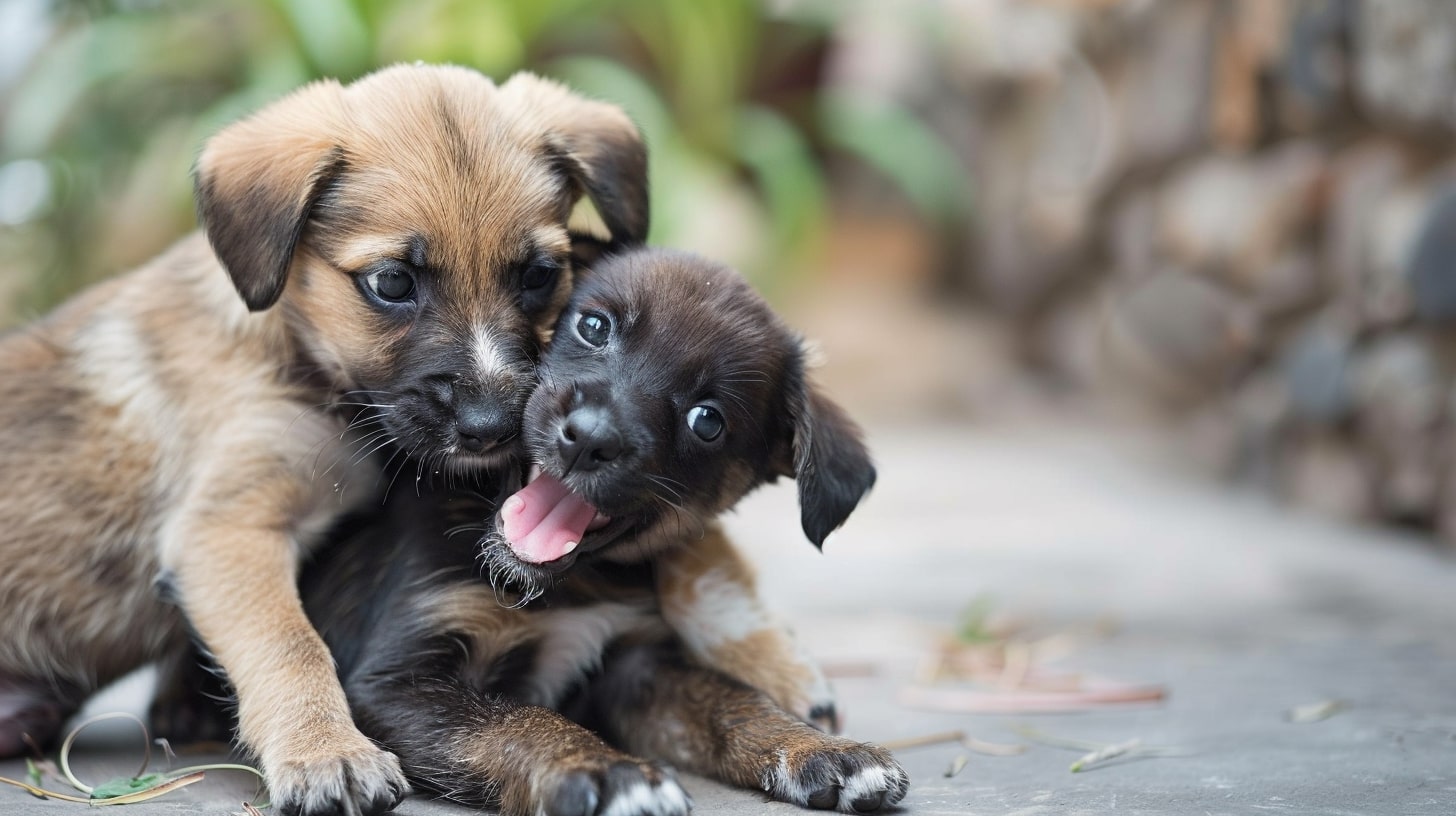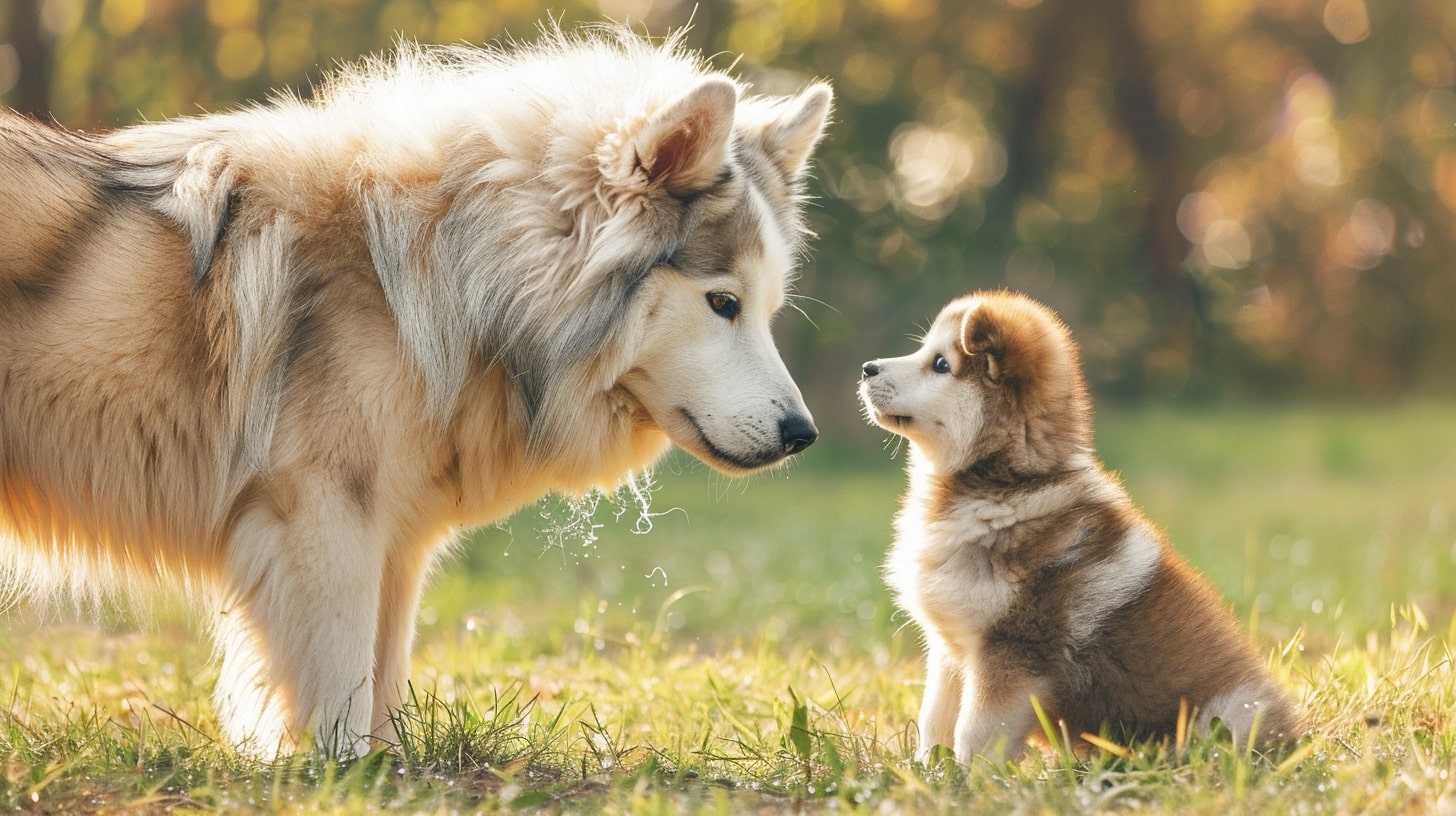
How to Socialize Your New Puppy Successfully
Bringing home a new puppy is an adventure filled with cuddles, playtime, and unforgettable moments. However, an essential part of your puppy’s early life is effectively socializing them. Proper socialization ensures your puppy grows into a well-adjusted adult, comfortable with various people, animals, and environments, but it’s not without its challenges.
As joyful and rewarding as it may be, guiding your furry friend through this stage requires patience, dedication, and an understanding of your puppy’s social needs. Here is where this comprehensive guide comes in handy, outlining the crucial steps you’ll need to take to build a solid foundation for your puppy’s future.
Knowing Your Puppy’s Socialization Window
Every puppy is unique, and their readiness to interact with the world hinges on recognizing their critical socialization period. The window for socialization typically opens at about three weeks of age and can extend up to approximately three months. During this phase, puppies are exceptionally receptive to new experiences, and the impressions they form can last a lifetime.
The importance of the first few weeks
Why is this period so critical? The experiences your puppy goes through during these formative weeks play a significant role in shaping their temperament and behavioural responses. Positive encounters with humans and other animals lay the groundwork for a sociable and confident canine. Conversely, lack of exposure or adverse experiences during this time could lead to fear, anxiety, or aggression in later life.
When is it too late to start socializing?
It’s a common question from new puppy parents, and while early socialization is ideal, it’s never too late to start. Older puppies and adults can still learn and adapt to new experiences; it may just require more patience and careful management. Do not let this discourage you; with consistent effort, older puppies can also become sociable and well-adjusted pets.
Fun Fact: Did you know that puppies can begin learning from social cues as early as 8 weeks old? This is the perfect time to introduce them to a well-planned socialization regimen.
Ensuring you understand the bounds of your puppy’s socialization window is key. As you continue with this guide, remember that a gentle approach, combined with plentiful diversity in experiences, will pave the way for your puppy’s happy and healthy development.
Step-By-Step Socialization Techniques

To ensure your puppy grows up to be a sociable and confident adult dog, it’s crucial to introduce them to a variety of experiences in a controlled and positive manner. Below is a comprehensive step-by-step approach to socializing your new puppy.
Creating Positive Associations
The foundation of successful socialization is building positive associations with new experiences. Whenever you introduce your puppy to something new—be it a person, another pet, or a different environment—try to make the encounter enjoyable and stress-free. Use treats, affection, and praise to reinforce that new experiences are something to look forward to. A well-timed treat can turn a potentially scary situation into a positive one, setting the stage for future encounters.
Introducing New People
Start by introducing your puppy to a diverse range of people, including children, adults, and the elderly, ensuring they experience different heights, voices, and mannerisms. Keep initial meetings short and sweet, allowing your puppy to approach in their own time. Remember to instruct new friends to be calm and avoid overwhelming your pup with too much enthusiasm.
Meeting Other Dogs and Animals
Socializing with other dogs is crucial for learning canine communication and etiquette. Arrange playdates with vaccinated and well-behaved dogs. Supervised interactions ensure your puppy learns from positive role models. Don’t forget about other species of pets they may encounter; introducing them to cats and other animals in a controlled setting can help broaden their social acumen.
Experiencing New Environments
Beyond your home and yard, expose your puppy to various settings such as parks, outdoor cafés, and pet-friendly stores. Each new environment comes with its unique set of stimuli, from different surfaces to walk on, to unfamiliar noises. Always be observant and ready to comfort and reassure your puppy if they seem nervous.
Key Takeaway: Remember, every puppy is different. Some may leap into new situations with tail wags, while others need more time to warm up. Patience and positive reinforcement remain your best tools throughout this process.
Socialization and Your Puppy’s Health
While it’s critical to socialize your puppy, it’s equally important to consider their health and well-being. Balancing socialization with their physical health can be a tricky part of puppy parenthood, but with the right information, you can navigate this journey confidently.
Vaccination Schedule and Socialization
One key aspect to understand is the vaccination schedule. Puppies receive immunity from their mother’s milk, but this starts to wane as they grow. A series of vaccines is necessary to protect them from common canine diseases. Your vet can provide you with a detailed schedule, but generally, puppies should not interact with unvaccinated dogs or explore public areas where other dogs have been until their vaccinations are complete.
Avoiding Health Risks During Socialization
While following this vaccination schedule, you can still socialize your puppy—just do so safely. You might carry your puppy in public places, have people over to your home, or organize playdates with healthy, vaccinated dogs. Always consult with your veterinarian for guidance tailored to your puppy’s specific health needs.
Popular Quote: “A dog is the only thing on earth that loves you more than he loves himself.” – Josh Billings.
At-Home Socialization Strategies
Socializing your new puppy isn’t limited to external adventures. Effective at-home strategies can lay the groundwork for a well-behaved adult dog and reduce the risk of future anxiety and behaviour problems.
Bark and Noise Desensitization
Your home is the perfect setting to get your puppy used to common household noises. Introduce a variety of sounds gradually—such as the vacuum cleaner, washing machine, and kitchen appliances—at a low volume initially, then gradually increase it over time as your puppy becomes comfortable. Reward calm behaviour with treats and praise to reinforce that these noises are normal and nothing to fear.
Handling and Grooming Acclimation
Regular handling of paws, ears, and the tail can desensitize your puppy to touches that they will experience during vet visits or grooming sessions. Start by gently handling different parts of your puppy’s body while they are calm and relaxed. Praise and reward them to create positive associations. Combining these handling exercises with basic grooming routines, like brushing and dental care, can also help your puppy become accustomed to these necessary habits.
Separation Anxiety Prevention Tactics
To prevent separation anxiety, it’s important to teach your puppy to be comfortable alone. Begin by leaving them in a safe space for short periods and gradually extend the time as they show signs of comfort. Provide stimulating toys and treats to keep them occupied, and make departures and returns low-key to avoid creating anxiety around your absence and presence.
Fun Fact: Puppies who learn to enjoy their own company often grow into more independent and confident dogs, a trait that is beneficial for both the pet and the pet parent.
Socialization Outside the Home



Once your puppy is comfortable at home, it’s time to explore socialization opportunities outside. There are numerous ways to acquaint your puppy with the world beyond your doorstep in a secure and controlled manner.
Safe Visits to Dog Parks
Once your puppy is sufficiently vaccinated, dog parks can be a great place for them to learn dog-to-dog interactions. Opt for quiet times initially to avoid overwhelming your puppy. Watch for signs of stress or aggression and be ready to intervene if play becomes too rough. Safety is paramount, so ensure the dog park is secure and well-maintained.
Puppy Training Classes – Are They Worth It?
A structured puppy class provides an excellent opportunity for socialization under the guidance of professionals. Trainers can offer advice on social cues and proper play, and you’ll also meet fellow pet owners who are on the same journey. These classes can help reinforce training efforts and establish desirable social behaviours.
Strategies for City Living with a Puppy
City living comes with its own set of challenges for puppy socialization. Bustling streets, loud noises, and crowded spaces can be intimidating for a young pup. Introduce your puppy to these environments slowly, during off-peak hours where possible. Carry treats to reward calm behaviour, and use a short leash for better control as they navigate the urban jungle.
Key Takeaway: Socialization is not a one-size-fits-all. Tailor the experiences to your puppy’s personality and pace, and always prioritize their safety and comfort.
Troubleshooting Common Socialization Challenges
Even with the best laid out socialization plans, you may encounter hiccups along the way. Being prepared to handle these can help you navigate puppyhood more smoothly.
Dealing with Overly Timid Puppies
Some puppies may be naturally shy and require a gentler approach to socialization. For these pups, start with quieter environments and fewer stimuli. Gradually introduce them to new people and experiences, ensuring each new situation is non-threatening and associated with positive rewards. Patience is key here — never force a timid puppy into a situation that clearly frightens them, as this can lead to long-term trust issues.
Addressing Aggressive Behaviors Early
Signs of aggression in puppies, such as snapping or growling, should be addressed promptly. This can often stem from fear or a lack of proper socialization. Consult with a professional trainer or behaviourist who uses positive reinforcement techniques to correct these behaviours. In the meantime, continue to expose your puppy to a variety of positive experiences at a pace they’re comfortable with.
Tips for High-Energy Breeds
High-energy breeds require more than just mental stimulation — physical exercise is equally important. Incorporate plenty of playtimes, walks, and if possible, activities that cater to their natural instincts, like fetch for retrievers or herding games for shepherd breeds. These activities can help tire out your puppy physically, making them more receptive to socialization experiences.
“The more you socialize your puppy, the more you help them develop into a confident, adaptable adult dog.”
Always remember the end goal of a happy and well-balanced companion, and use that as motivation through the challenges.
Measuring Your Puppy’s Socialization Progress
As your puppy grows and you continue with your socialization plan, it’s important to occasionally step back and assess their progress. This helps to ensure that you’re on the right track and allows you to adjust your strategies as your puppy matures.
Key Milestones in Puppy Socialization
Keep an eye out for specific milestones, such as the first positive playdate with another dog or the first successful encounter with a stranger. Note how your puppy reacts to new experiences. Are they curious? Cautious but willing? Or are they overwhelmed? Their reactions to these events are good indicators of their socialization progress.
Recognizing Signs of Successful Socialization
Signs of successful socialization may include your puppy showing relaxed body language in new situations, playing well with other dogs, or demonstrating a calm demeanour when encountering strangers. If your puppy shows signs of comfort and joy in a variety of settings, you’re likely on the right path. Nevertheless, socialization is a continuous process, so don’t stop exposing them to new experiences even if they seem well-adjusted.
Fun Fact: Dogs who are well-socialized often have a characteristic ‘play bow’ they exhibit when interacting with new friends. This is a great sign that they’re inviting and enjoying playful interactions.
Advanced Socialization: Preparing for Adulthood
As your puppy matures, continued socialization efforts are necessary to maintain their adaptability and to ensure they don’t lose the beneficial progress you’ve both worked so hard to achieve.
Continuing Socialization into Adulthood
Just because your puppy has grown up doesn’t mean socialization should stop. Continuous exposure to new situations, people, and other pets helps maintain their social skills. It also keeps their life enriched and interesting, which is beneficial for their overall well-being.
Socializing an Adopted Older Puppy
If you’ve adopted an older puppy or young dog, the fundamentals of socialization still apply. You may need to start slower and be extra patient, as it could take more time for them to unlearn any past negative associations. Consistency and positive reinforcement will be your allies in helping an older puppy become a happy and social family member.
“Dogs are not our whole life, but they make our lives whole.” – Roger Caras
A well-socialized dog certainly contributes greatly to this sentiment, enhancing both the life of the dog and the owner.
Conclusion: Putting It All Together
Throughout the journey of socializing your new puppy, remember that every moment spent building their confidence and comfort with the world around them is an investment in their future and yours. You are setting the stage for a lifetime of companionship, adventure, and mutual understanding between you and your canine friend.
Revisit the techniques outlined in this guide regularly and stay attuned to your puppy’s responses. With dedication, patience, and a sprinkle of love, your puppy will be well on their way to becoming the sociable, well-adjusted dog you envision. The effort you put into these early months will pay dividends in the many rewarding years you’ll share together. Happy socializing!
FAQs
What if my puppy seems scared of other dogs?
If your puppy shows fear around other dogs, it’s important to address this early. Begin by observing from a distance, allowing your puppy to watch other dogs interact without the pressure of joining in. Reward calm behaviour and gradually decrease the distance. Controlled encounters with calm, friendly dogs in a neutral space can help build confidence. If fear persists, consider enlisting the help of a professional dog trainer.
Can you socialize a puppy too much?
While socialization is necessary, overdoing it can be just as detrimental as not doing it at all. Be mindful of your puppy’s body language and stress signals. If they seem overwhelmed, take a break and allow them to rest. Quality of interactions is more valuable than quantity. Your puppy’s health and well-being should always be a priority.
How do I balance socialization with my work schedule?
Busy work schedules can make socialization challenging, but there are ways to integrate it into your routine. Use your off-hours for puppy classes, playdates, and exploration. During workdays, consider a trusted pet sitter or a dog walking service to provide interaction and engagement. Lunch breaks can also be used for short, positive socialization experiences.
Are doggy daycares good for socialization?
Doggy daycares can be excellent environments for socializing your puppy, provided they are well-managed and staffed by trained professionals who understand dog behaviour. Before enrolling, visit the daycare, observe how the dogs are supervised, and ensure the playgroups are appropriately sized. Start with short sessions and gradually increase their duration as your puppy becomes more comfortable.
How do I socialize my puppy during the winter or bad weather?
Bad weather doesn’t have to halt socialization. Indoor dog-friendly venues like pet stores and some coffee shops can be utilized for social experiences. At home, work on desensitization to noises and a variety of surfaces, such as different floor types. Short but frequent exposure to snow and rain, properly dressed for the weather, can also be beneficial as part of the socialization process.

